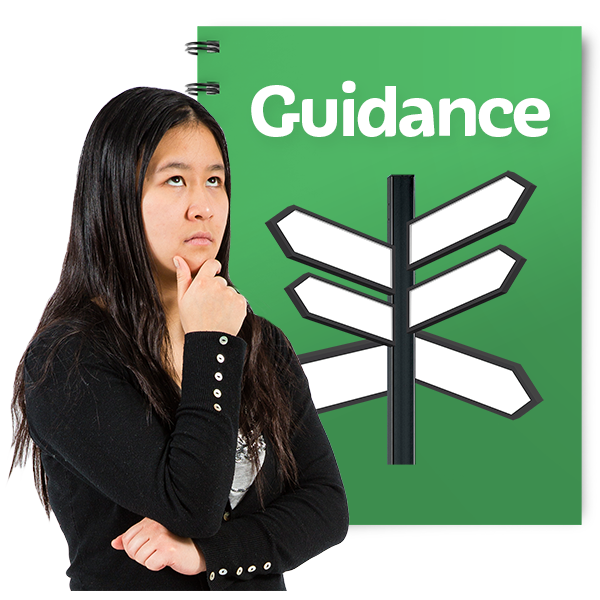What happens in a PIP assessment Easy Read
What happens in a Personal Independence Payment assessment

What is Personal Independence Payment (PIP)?
Personal Independence Payment (PIP) is the name of a benefit that some people with a disability or health condition get.
The money is to pay for extra help to look after yourself and to get around.
This Easy Read tells you what happens in a PIP assessment.

After you have applied for a PIP your form will be looked at by a health professional like a doctor or a nurse.

The health professional will look at other things too - like statements from your
social worker
 A social worker is someone who can help you get the support you need. Social workers usually work for your local
council
A social worker is someone who can help you get the support you need. Social workers usually work for your local
council
 A council is also called a
local authority
A council is also called a
local authority
 A local authority is also called a council. They are a group of people who make decisions about some of the things in the area where you live like schools,
social care
A local authority is also called a council. They are a group of people who make decisions about some of the things in the area where you live like schools,
social care
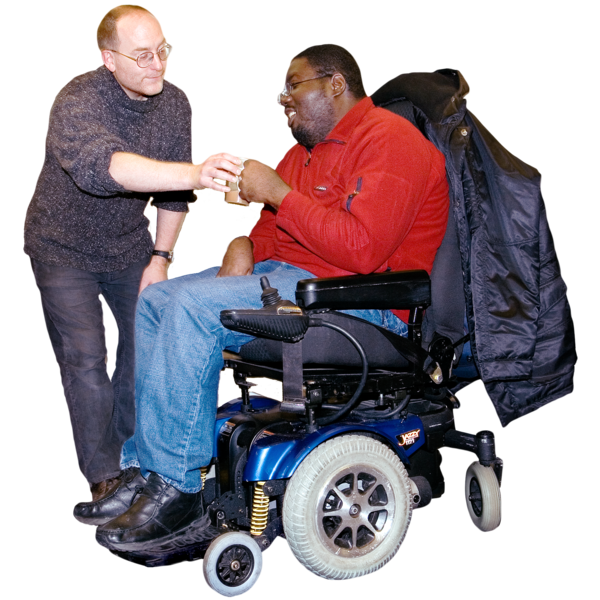 Social care means the services that give care and support to people who need it.
(support for people), parks and dustbin collection.
. They are a group of people who make decisions about some of the things in the area where you live. These include: schools, social care (support for people), parks and dustbin collection.
.
and your care plan.
Social care means the services that give care and support to people who need it.
(support for people), parks and dustbin collection.
. They are a group of people who make decisions about some of the things in the area where you live. These include: schools, social care (support for people), parks and dustbin collection.
.
and your care plan.
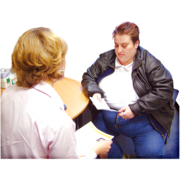
Most people will be asked to go to a meeting with the health professional.
This could be over the phone or face-to-face.

A face-to-face meeting might take place:
- in your own home.

- at an assessment centre.
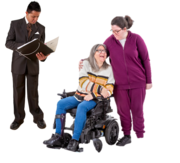
A family member, carer, or friend can come to your assessment with you.

The meeting can take about 1 hour but might go on for longer.
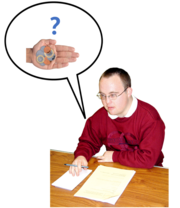
You may be asked some simple questions like:
- "How much money would you get back if you bought something for 80p using a £1 coin?"

The health professional may also want to see how you move.
They may ask you to do things like put your finger on your nose.

You may also be asked about how you do activities like cooking.
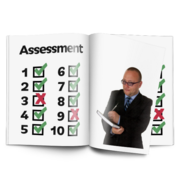
The health professional asks you all these questions so they can find out how much help you need.
This is called having an assessment.

They give you points for each thing you find difficult to do.
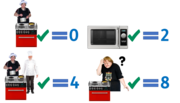
For example:
- If you can make a meal you get 0 points
- If you can only make a meal using a microwave you get 2 points
- If you need someone to watch or help you make a meal you get 4 points
- If you are unable to make a meal you get 8 points.

People need 8 points before they can get PIP at the normal rate.
The Department for Work and Pensions
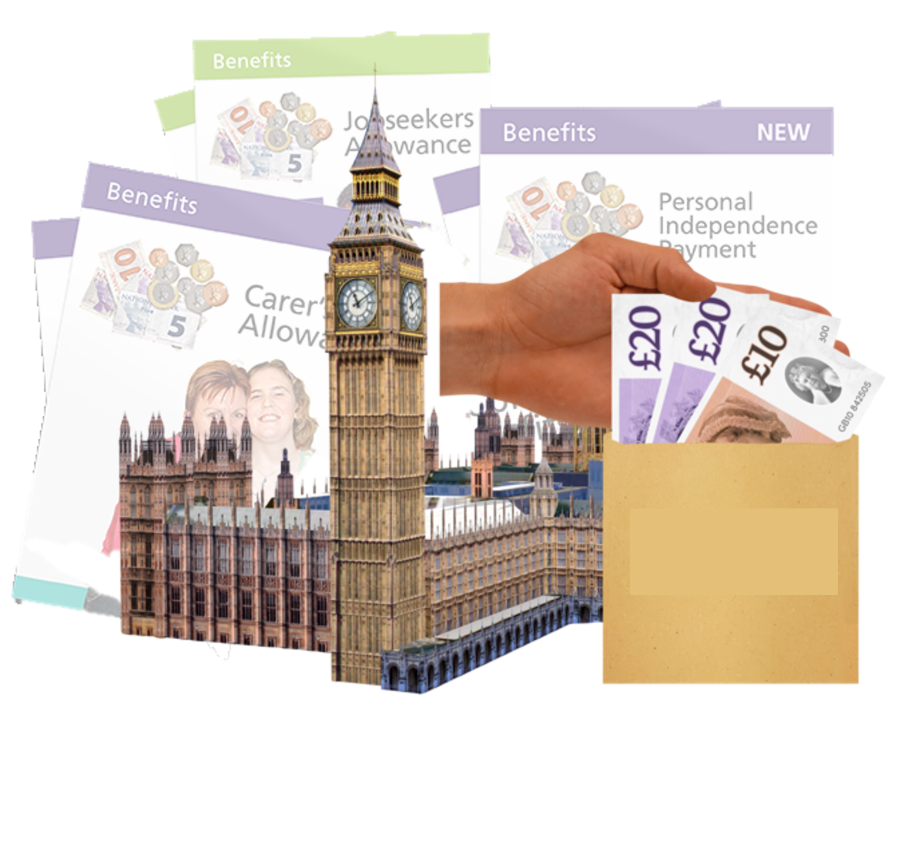 The Department for Work and Pensions is sometimes called the DWP. It is part of
the government
The Department for Work and Pensions is sometimes called the DWP. It is part of
the government
 The Government are the people who run the country. The Government decide how much tax people should pay and how things like the National Health Service (NHS) should work.
and manages payments and benefits like Universal Credit, Personal Independence Payment,
Employment
The Government are the people who run the country. The Government decide how much tax people should pay and how things like the National Health Service (NHS) should work.
and manages payments and benefits like Universal Credit, Personal Independence Payment,
Employment
 Employment means having a job.
and Support Allowance, and Income Support.
(DWP) call the normal PIP rate the 'standard' rate.
Employment means having a job.
and Support Allowance, and Income Support.
(DWP) call the normal PIP rate the 'standard' rate.

People with 12 points get a higher rate of PIP.
The DWP call the higher rate, the 'enhanced' rate.

If you want, you can ask for a recording of your assessment appointment.

If you want a recording of your assessment you will need to phone the Centre for Health and Disability Assessments a few days before your appointment.
Telephone: 0800 288 8777
For more information visit their
website
 A website is a page you can go to on the internet like Google or YouTube.
at: https://chdauk.co.uk/
A website is a page you can go to on the internet like Google or YouTube.
at: https://chdauk.co.uk/

If you miss your assessment appointment you will be asked why you did not make it.
If you have a good reason you may be given another date for your assessment.

If you do not give a good reason for missing your assessment, you may not get PIP.
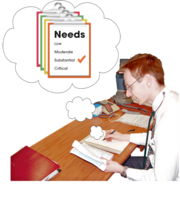
After the assessment, the health professional will make a report for the Department for Work and Pensions (DWP) that tells them how much help you need.
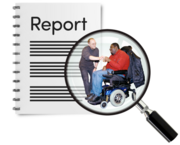
The DWP will look at the report, and any other information, to see if you should get PIP.
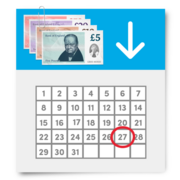
If they think you should get PIP, they will also decide:
- how long you should get PIP for.
- if you should get the standard PIP rate, or the enhanced PIP rate.
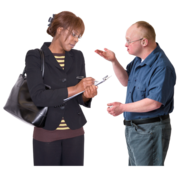
If you are not happy about any decision made by the Department for Work and Pensions (DWP), you can
appeal
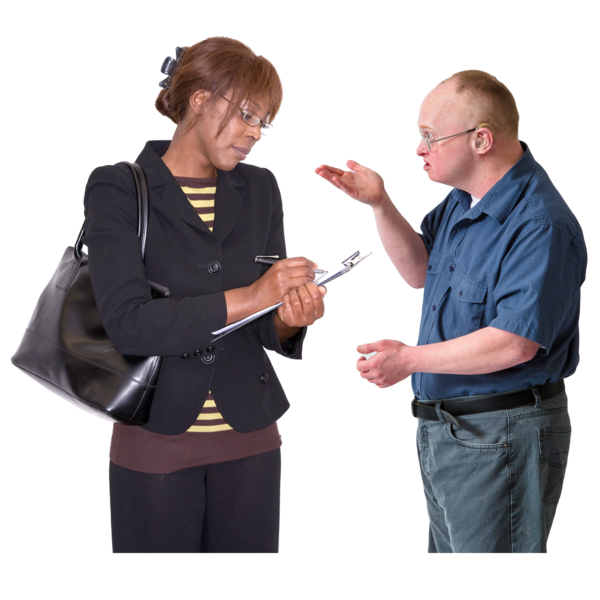 To appeal means saying you want someone to think about a decision again.
.
To appeal means saying you want someone to think about a decision again.
.
Appeal means saying you want someone to think about a decision again.
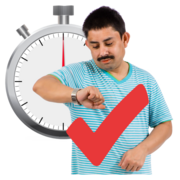
If you want to make an appeal about your PIP decision, you need to do it very quickly before the time to appeal runs out.
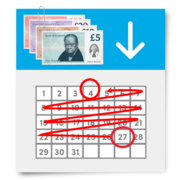
If you are told you will get PIP, the Department for Work and Pensions (DWP) will make payments to you from the date you first applied for PIP.

